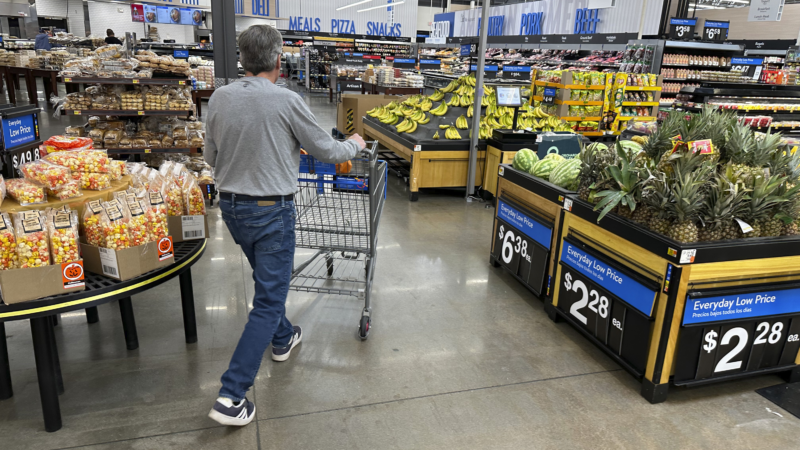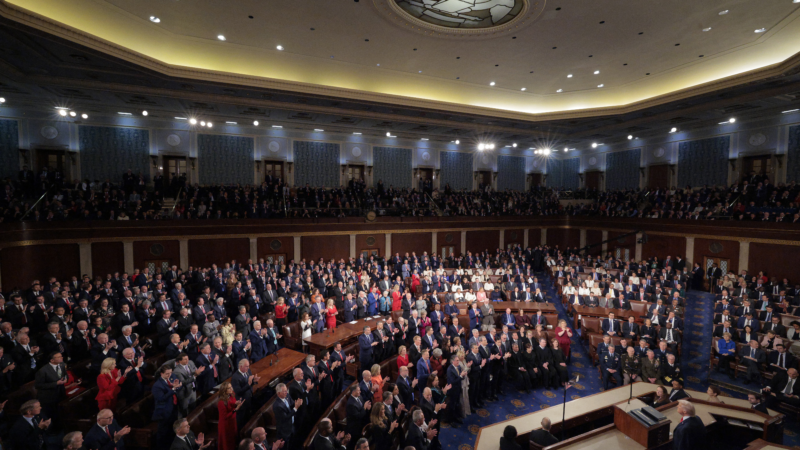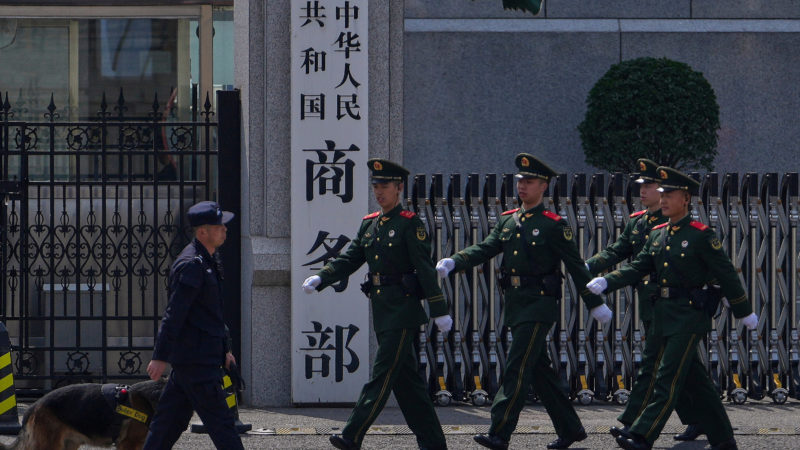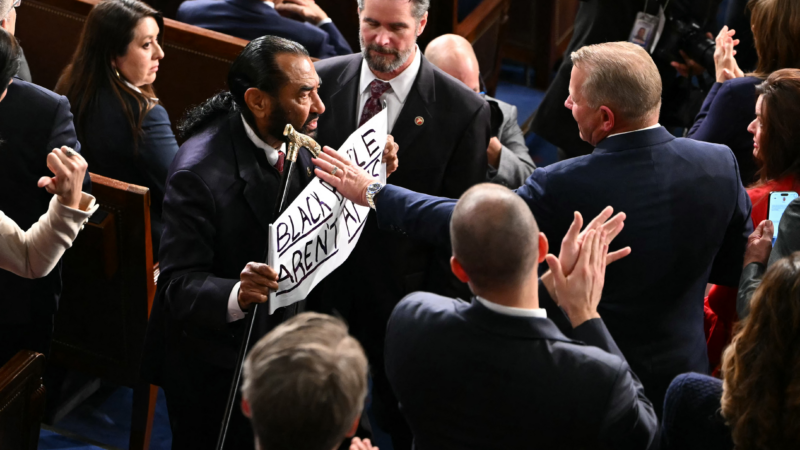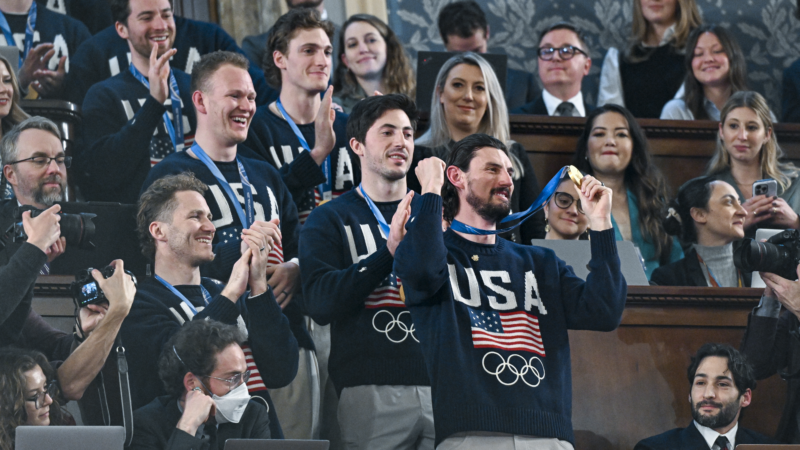Walmart says higher prices from tariffs coming as soon as this month
Walmart says U.S. tariffs on imports from China and other countries will force the retail giant to begin raising some prices as soon as this month.
The company’s CEO Doug McMillon said Thursday many items on the stores’ shelves are costing more for the company, and will start costing more for shoppers too. Walmart’s finance chief said higher prices were likely to come as soon as this month and into the summer.
Speaking to investors after releasing quarterly earnings, McMillon said Walmart will work to protect food prices as much as possible.
“We will do our best to keep our prices as low as possible,” he said. “But given the magnitude of the tariffs, even at the reduced levels announced this week, we aren’t able to absorb all the pressure given the reality of narrow retail margins in retail.”
He thanked President Trump and Treasury Secretary Scott Bessent “for the progress made recently” with a deal that temporarily eased China tariffs to 30% from 145%. McMillon said he hoped for a longer term agreement for even lower taxes on Chinese imports. And he said he hoped the government would lift tariffs on food items, such as bananas and avocados, that do not grow in the U.S. but face the universal 10% tariff when imported.
Retail sales are a key pillar of the U.S. economy, and in recent months, some people have begun tightening their budgets in anticipation of higher prices from additional tariffs. People are being selective in choosing where to spend more, such as outings at restaurants and bars, and that has helped overall retail sales from sinking and instead remaining flat in April compared to March, new government data on Thursday show.
“Consumers overall have the money, they’re just losing the will to spend it,” Navy Federal Credit Union economist Robert Frick said in a statement. “Nerves over tariffs and even the jobs market have Americans generally saving more and spending less, but consumption is still increasing, however slightly.”
Walmart, for its part, reported sales rose 4.5% in the latest quarter, between February and April. Executives said about two-thirds of Walmart’s U.S. goods are grown, made or assembled domestically. But the retailer still imports from dozens of other countries, especially electronics and toys from China.
McMillon described numerous ways Walmart is pushing to avoid higher prices. In some cases, like flowers for Mother’s Day, the company and its suppliers have moved to absorb higher import costs. Or Walmart might spread the cost hike of one item with smaller price increases across numerous items in the same department. The company has also been moving some production out of China, and it’s pushed suppliers to change materials — for example, skipping tariffed aluminum in favor of fiberglass without tariffs.
The largest consumer brands have begun warning about the state of the American consumer and cutting their sales forecasts for the year because of tariffs. That includes Pepsi (which also owns Frito-Lay and Quaker Oats), Kimberly-Clark (which makes Kleenex, Huggies and Scott toilet paper) and Procter & Gamble (which makes Tide, Pampers and Charmin).
The big theme continues to be uncertainty, as the Trump administration negotiates individual deals with different countries and shifts its stance on tariffs. The trade war ramped up at the beginning of April, so price hikes have not yet affected the cost of living, with inflation easing last month.
Trump’s many tariff tools mean consumer prices won’t go down, analysts say
The Supreme Court struck down President Trump's signature tariffs. But the president has other tariff tools, and consumers shouldn't expect cheaper prices anytime soon, economists say.
Hundreds of American nurses choose Canada over the U.S. under Trump
More than 1,000 American nurses have successfully applied for licensure in British Columbia since April, a massive increase over prior years.
5 takeaways from Trump’s State of the Union address
President Trump hit familiar notes on immigration and culture in his speech Tuesday night, but he largely underplayed the economic problems that voters say they are most concerned about.
China restricts exports to 40 Japanese entities with ties to military
China on Tuesday restricted exports to 40 Japanese entities it says are contributing to Japan's "remilitarization," in the latest escalation of tensions with Tokyo.
Signs, silence, and skipping: How Democrats protested Trump’s State of the Union
The pushback comes as Democrats enter a midterm year where they hope to make gains in the House and Senate.
Trump honors gold medal-winning men’s hockey team at State of the Union amid controversy
The celebration of the men's team comes after FBI Director Kash Patel's trip to the Games in Milan, and the president's comments about the U.S. women's team, have drawn scrutiny.

